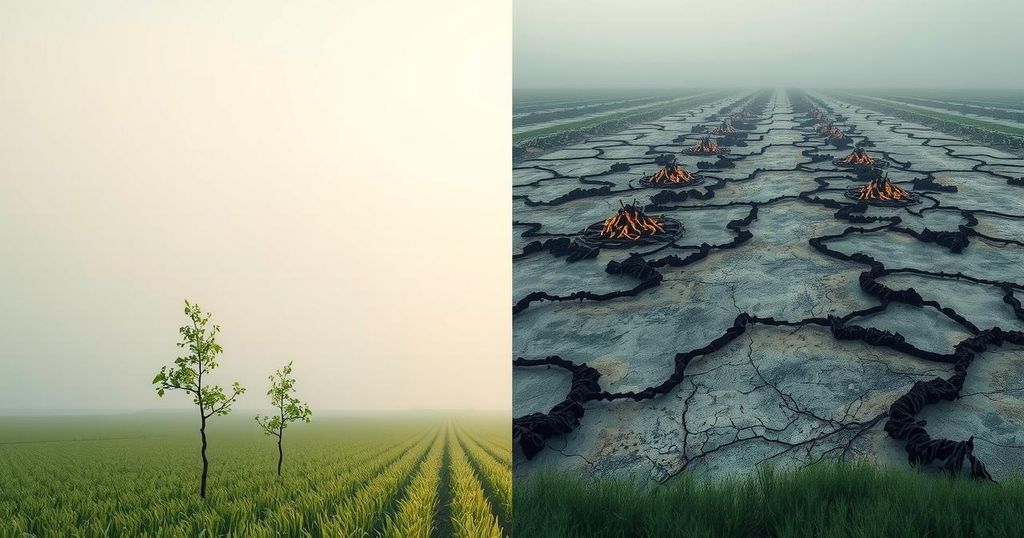Farmers in Bolivia are deliberating whether to continue the practice of burning land for agriculture or to adopt tree planting strategies to alleviate drought impacts, reflecting the conflict between short-term agricultural gains and long-term ecological health.
Bolivian farmers are currently faced with a critical decision following last year’s devastating wildfires, which ravaged approximately 10.7 million hectares (26.4 million acres) of tropical forest in the eastern lowlands. The options under consideration include the continuation of land-clearing practices through fire for agricultural development or the implementation of tree planting initiatives aimed at combating increasing drought conditions. This dilemma highlights the tension between immediate agricultural needs and long-term environmental sustainability.
In summary, Bolivian farmers must navigate complex choices regarding land use as they weigh the immediate benefits of agricultural expansion against the environmental repercussions of their actions. The devastation from last year’s wildfires serves as a stark reminder of the urgent need for sustainable practices that protect both livelihoods and ecosystems.
Original Source: www.northwestsignal.net




